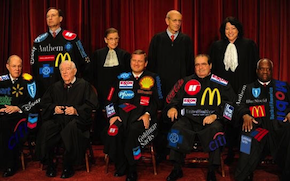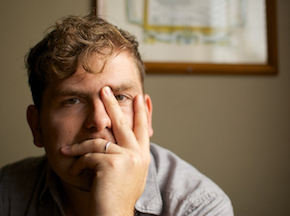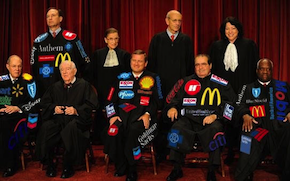
Long before Ted Hearne is to begin his residence as S.F. Symphony's New Voices composer, he is making significant waves on the local music scene. Let Volti Executive Director Barbara Heroux explain the ensemble's upcoming concert, titled "(Ch)oral Argument":
The piece we’re premiering this month is shaping up to be something really out of the ordinary. Called Sound from the Bench, it's a major piece, about 30-35 minutes long, and unlike almost everything else Volti does (unaccompanied), this one has two electric guitars and a drummer. The piece is based on oral arguments in the "Citizens United" case and is about the nature of human speech. [Volti Artistic Director] Bob Geary says, "We’re not just out of the box, the walls of the box have been flattened and we’re tromping all over them ..."Ted is bringing the instrumentalists with him from NY, and they’ll be in town the week of May 12 to rehearse with the singers. Wednesday night, May 14, we’re having an open rehearsal at the Center for New Music, beginning at 7 p.m.; the event is free, registration is optional.

“Can a corporation be human?" asks Hearne in the cantata co-commissioned by Volti and The Crossing in Philadelphia. Working with poet Jena Osman, Hearne muses on the nature of human speech, using poetry taken from the "Citizens United" oral argument before the Supreme Court. Guitarists Taylor Levine and James Moore and percussionist Ron Wiltrout join Volti in a rare departure from a cappella, carrying out the human/non-human theme — the singers are using the most natural instrument there is, while the guitars are harnessing currents and circuits to make what is essentially electronic music.
Another new work on the program is by Melissa Dunphy, who is from Philadelphia, Australian by birth, and the daughter of a Greek father and a Chinese mother, "which may help explain," says Heroux, "why she’s setting the Oath of Allegiance taken by naturalized US citizens to music."
Kirke Mechem's "Winging Wildly" and "We Can Sing That!" round out the program, songs partially commissioned from "the dean of American choral composers" by Volti when the group was called the San Francisco Chamber Singers, back in the 1990s.

